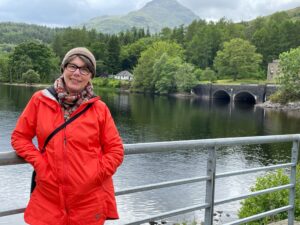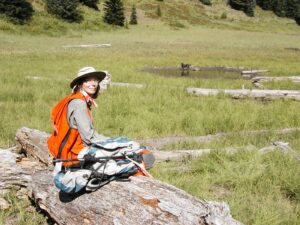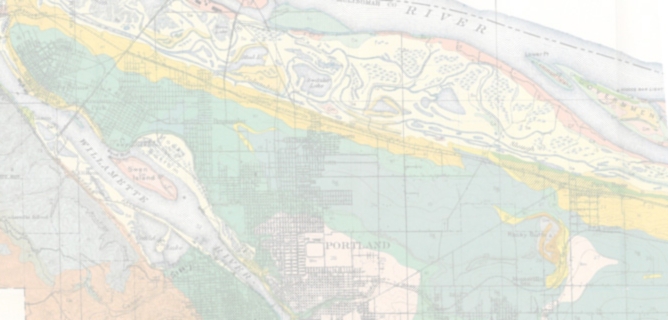Joyce LeCompte, Ph.D.
Environmental Anthropologist
Ph.D., Anthropology, University of Washington, 2015
M.A., Anthropology, University of Washington, 2009
B.A., Anthropology, Minor South Asian Studies, University of Washington, 2004
 Joyce is an environmental anthropologist whose areas of expertise include ethnographic, archival, and ethnobotanical research focused on people-place relationships in the Western US. She has over fifteen years of experience collaborating with Native American Tribes in Oregon and Washington to document their use and stewardship of native plants and landscapes and their traditional cultural places and has conducted Traditional Cultural Place studies related to NHPA Section 106 compliance.
Joyce is an environmental anthropologist whose areas of expertise include ethnographic, archival, and ethnobotanical research focused on people-place relationships in the Western US. She has over fifteen years of experience collaborating with Native American Tribes in Oregon and Washington to document their use and stewardship of native plants and landscapes and their traditional cultural places and has conducted Traditional Cultural Place studies related to NHPA Section 106 compliance.
Prior to joining Willamette CRA, Joyce was the principal of a majority woman-owned consulting firm, where she worked with numerous Tribes to research, interpret and communicate information related to land use, traditional cultural places, ethnobotany, access to and stewardship of First Foods, and Indigenous resource governance. She also contracted with WillametteCRA as an archaeobotanist to analyze macrobotanical remains recovered from archaeological contexts. In addition to her consulting work, Joyce was a part-time lecturer in the Environmental Studies Program at the University of Washington.
 Joyce has authored or co-authored book chapters and papers on a range of topics, including the reintroduction of cultural burning on public lands, historical ecology, archaeobotany, urban foraging, and development of First Foods curricula for Tribal communities.
Joyce has authored or co-authored book chapters and papers on a range of topics, including the reintroduction of cultural burning on public lands, historical ecology, archaeobotany, urban foraging, and development of First Foods curricula for Tribal communities.
She is an adjunct member of the Quaternary Research Center at the University of Washington, and the community lead for the UW Earthlab sponsored project, “Cultural Ecosystems in a changing world: Building a network across the Northwest to support food sovereignty, climate adaptation and land rights.” She is also one of the co-founders of the Southwest Washington Camas Collaborative, which is focused on supporting Tribal communities’ efforts to increase access to camas harvesting and decision-making about the stewardship of camas prairies in Southwest Washington State. She is also contributing to the development of a regional Camas Collaborative that focuses on these same goals.
